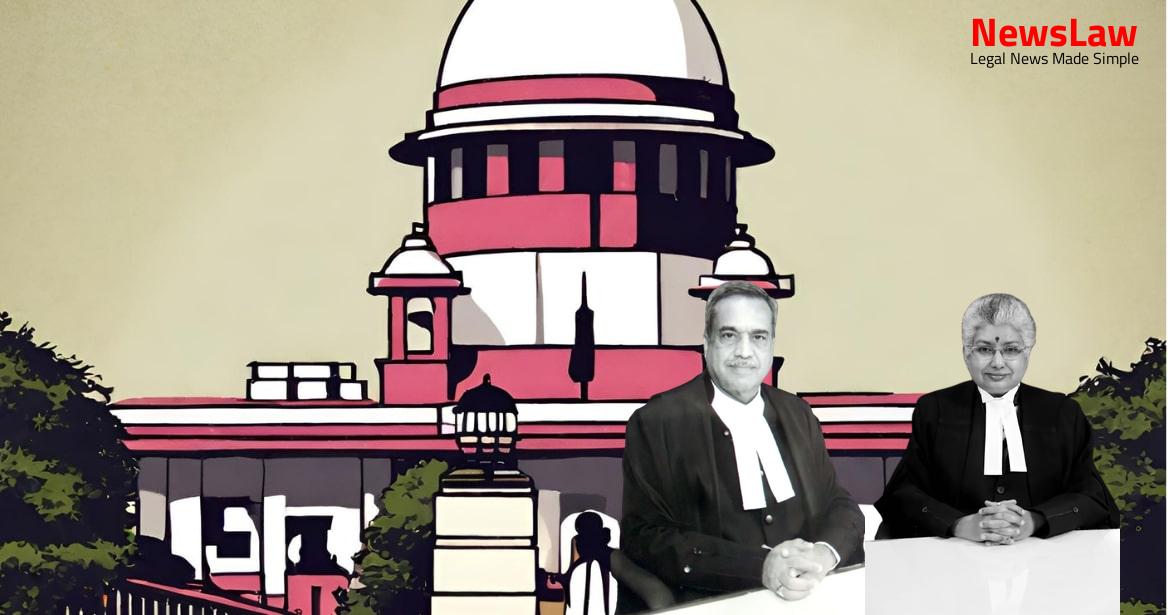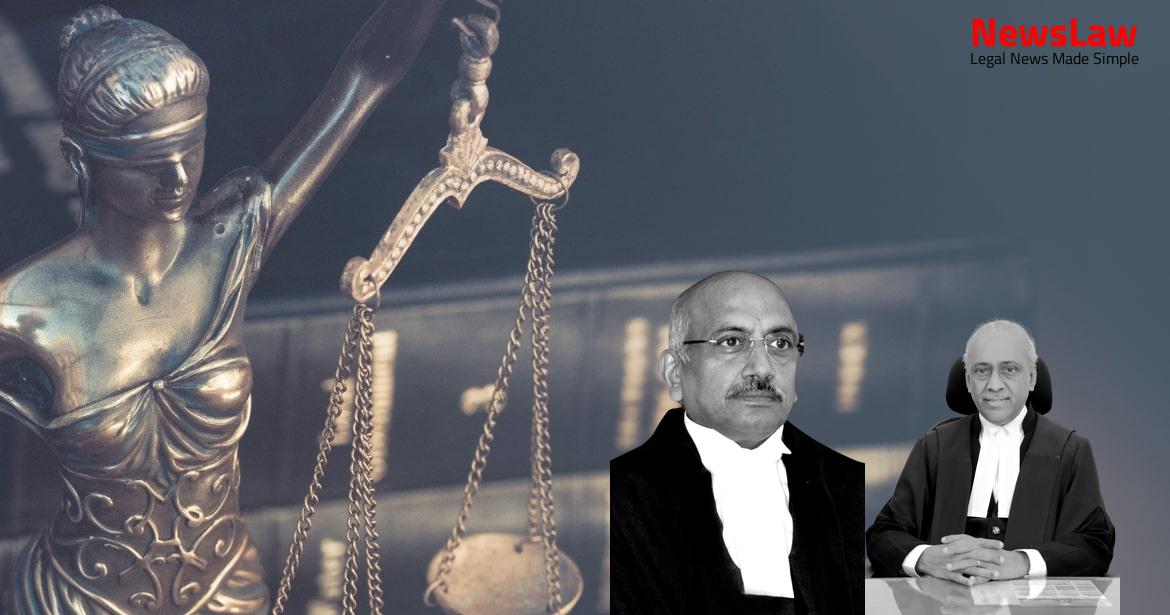Delve into the legal intricacies of a recent court case where the court analyzed the relevance of Order XXI Rule 97 and Order XXI Rule 101 CPC in execution proceedings. The focus was on determining the right, title, and interest of a party in a property acquired under the Land Acquisition Act, showcasing the importance of proper adjudication by the court. Follow the legal analysis in this blog to understand the significance of established possession in execution proceedings.
Facts
- The Trial Court dismissed the suit on 20.03.2008.
- High Court allowed the appeal filed by respondent no.1 on 13.06.2012.
- Special leave petition challenging the High Court’s decision was dismissed by the Supreme Court on 11.02.2013.
- Appellant-BDA was not a party in the suit.
- Respondent no.1 entered into a lease agreement with respondent no.2 for part of the land in 1999.
- Notification under Section 16(2) of Land Acquisition Act, 1894 was issued on 01.04.1982.
- BDA filed applications in execution proceedings related to the acquired land.
- Appellant-BDA filed a suit in 2013 challenging the lease agreement and seeking a declaration of its nullity.
- Final notification for the acquired land was issued on 02.08.1978.
- Award of compensation was passed on 12.06.1981.
- Possession of the acquired land was taken over by the Government and handed to BDA in 1981.
- Respondent no.1 filed a civil suit for ejectment in 2000 against respondent no.2.
- BDA’s applications to implead in the execution petition were rejected by the Executing Court.
- BDA filed writ petitions before the High Court which were dismissed.
- Present appeals are by the obstructor-BDA.
- Arguments made by BDA’s counsel regarding the misreading of Order XXI Rule 97 r/w Rule 101 CPC.
- Land measuring 01 acre 15 guntas was acquired by BDA in 1977.
Also Read: Legal Analysis on Concurrent Sentences in Drug Trafficking Cases
Arguments
- Substantive suit filed by BDA is pending to declare the agreement of lease null and void.
- The Executing Court should have allowed the impleadment application filed by BDA.
- The property in question has already been acquired by BDA under the 1976 Act.
- The possession of the land was taken over by BDA and notification under Land Acquisition Act was issued vesting the land with BDA.
- Respondent no.1 entered into agreement of lease with respondent no.2 collusively or illegally.
Also Read: Upholding Professional Standards in Legal Disciplinary Proceedings
Analysis
- Order XXI Rule 97 and Order XXI Rule 101 CPC are relevant in the current case.
- Order XXI Rule 97 deals with resistance or obstruction to possession of immovable property.
- Order XXI Rule 101 states that all questions related to right, title, or interest in the property must be determined by the Court handling the application, without the need for a separate suit.
- The Executing Court and High Court correctly dismissed the applications filed by BDA under Order XXI Rule 97 CPC due to lack of established possession by the obstructionist.
- The lease agreement between the decree holder and judgment debtor is considered null and void after the land was acquired by BDA under the 1976 Act.
- BDA’s claim of right, title, or interest in the acquired land is crucial in the execution proceedings and requires adjudication by involving BDA as a party.
- The notification under Section 16(2) of the Land Acquisition Act supports BDA’s possession of the acquired land.
- The obstruction/objection raised by BDA in the execution proceedings regarding the suit land’s possession was pertinent due to its claim of right, title, or interest in the property.
- The Executing Court’s order dismissing applications filed by BDA for impleadment and obstruction application is unsustainable
- The question of BDA’s right, title, or interest in the suit property needs to be adjudicated by the Executing Court as per Order XXI Rule 101 CPC
- An ongoing substantive suit (O.S. No 2070/2013) by BDA against the decree holder and judgment debtor should not hinder the adjudication in the execution proceedings
Also Read: Quashing of Criminal Proceedings: Legal Analysis
Decision
- The Executing Court is directed to implead the appellant, BDA, in the execution petition and adjudicate on the objections raised by BDA within six months.
- The High Court’s judgment and order dismissing the writ petitions filed by BDA and the Executing Court’s order dismissing the application for impleadment are quashed and set aside.
- The appeals succeed and the appellant is permitted to be impleaded in the execution proceedings.
Case Title: BANGALORE DEVELOPMENT AUTHORITY Vs. N NANJAPPA . (2021 INSC 827)
Case Number: C.A. No.-006996-006997 / 2021



